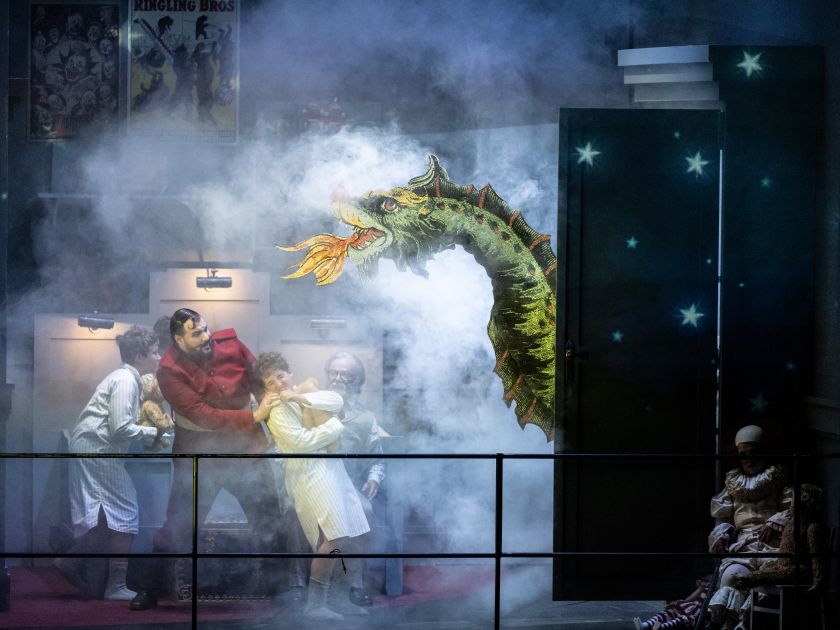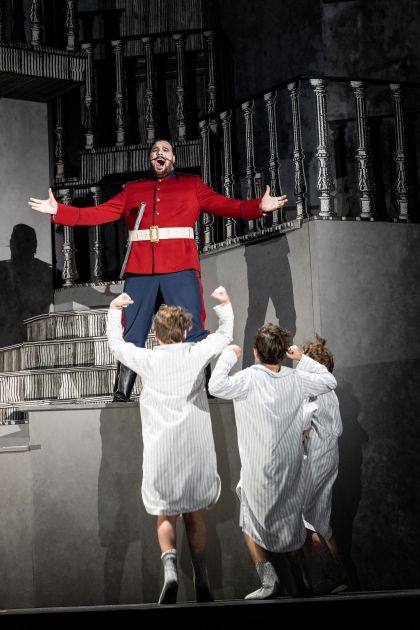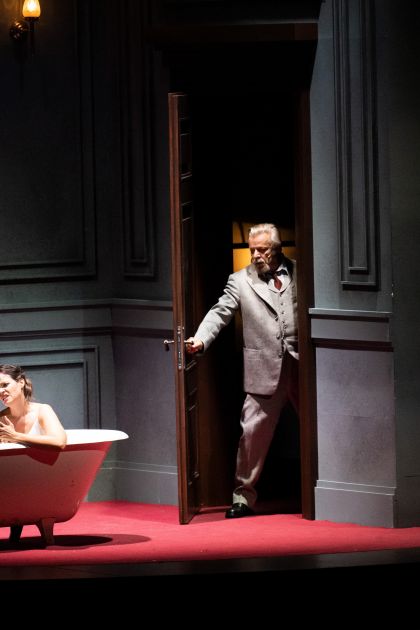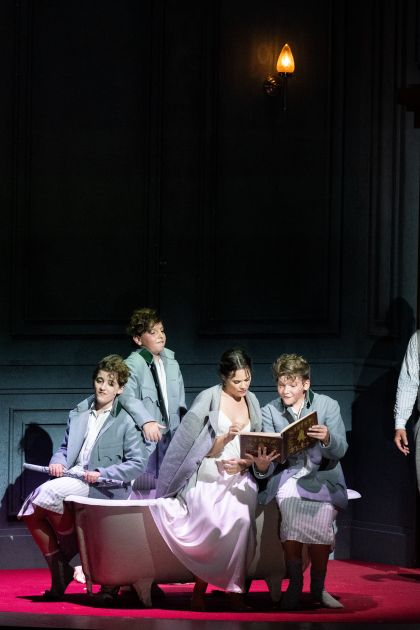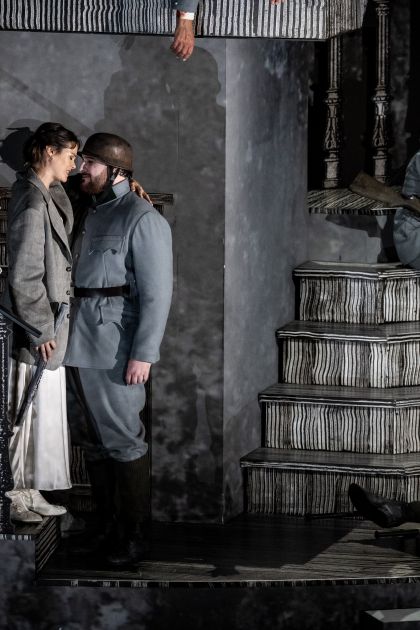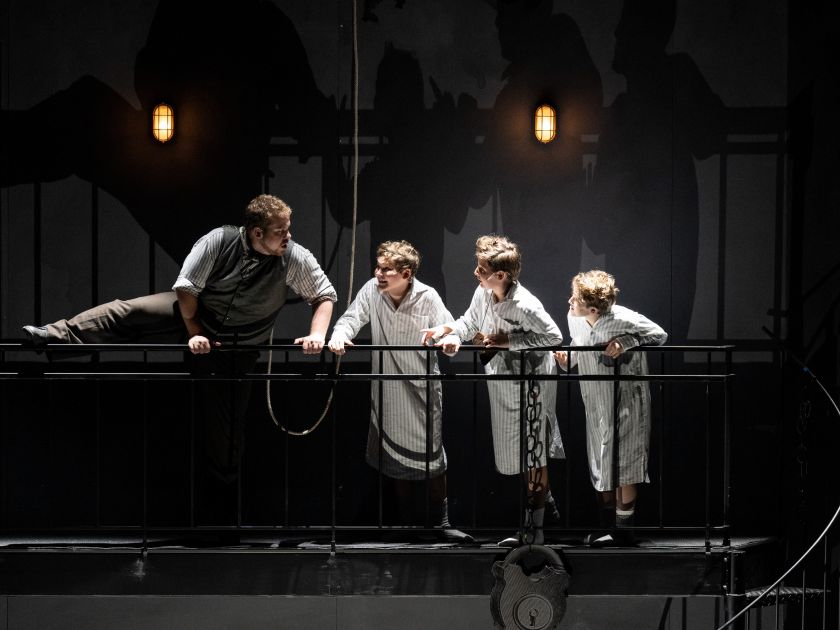Magic opera, Singspiel, a comedy with spectacular stage effects, Masonic ritual with Egyptian mysteries, heroic-comic opera? Die Zauberflöte is heard more often and has been more frequently performed, discussed, queried and interrogated than almost any other work in the history of opera. It is rare for the mysteriousness and multiformity of a work to be adjured with such mantric intensity. It is equally rare for a work to enjoy such undisputed success despite all these debates — and for over 200 years at that.
Singspiels with a fairy-tale setting were in vogue on stages in the outlying districts of Vienna during the second half of the 18th century. Die Zauberflöte is part of this tradition: the high-spirited start to the action with the spectacular pursuit of prince by monster, a love story that begins with the quest of freeing an abducted princess and in which two antagonists in the shape of Sarastro and the Queen of the Night seem to fight for good and evil in the world, comical figures like Papageno, who simply blunders through all his trials like one of Rousseau’s natural men, thereby winning his place not only in the fabric of this opera but also in the hearts of the audience. And not least the magic flute itself, a magical instrument as ‘title character’, that together with the equally wondrous glockenspiel assumes the role of destiny.
Emanuel Schikaneder, versatile artist and enter-prising impresario, took one of his inspirations for the libretto from the fantastical worlds of Christoph Martin Wieland’s Dschinnistan, a collection of fairy tales. He was in any case well aware of the combined effect of sentiment, comedy and spectacle: his Theater auf der Wieden was known for its impressive special effects achieved by elaborate scene changes and the use of stage machinery. At the same time, Mozart’s work reflects the contemporary fascination of an educated audience with ancient mysteries and their initiation rites, in which trials and confrontation with death played an integral role and with which Mozart, as member of a Masonic lodge himself, was also intimately familiar.
Director Lydia Steier entrusts the plot to a narrator, with a grandfather reading Die Zauberflöte as a bedtime story to his three grandsons. But reading aloud and listening also involves bringing one’s own past and world of experience into the story one is telling or listening to — and vice versa. In this way the exuberant fantasy of the Zauberflöte bursts into a strict, upper-class household where reverie has little space, taking the three young boys straight into the heart of the action. As the Three Boys they plunge into a world of fairy tale and dreams in which elements from the boys’ everyday life repeat edly show up in surreally enlarged dimensions. With the eyes of children they accompany and guide the protagonists through their destinies. But what Mozart and Schikaneder start off as a heroic tale about the rescue of a princess with an almost humorous duo of prince and clownish bird catcher increasingly becomes a journey into the unknown. It is precisely this fusion of fairy-tale elements and ostensibly Enlightened thought that keeps us in suspense. Die Zauberflöte also tells of changing time in which we live through stories of loss, love and separation, of menace from what we perceive as Other, and at the same time of its fascination, of fear and the overcoming of this fear.
In the finale of Act I Mozart rapidly expands the spectrum of keys as if deliberately wanting to upset the innocent view of this fairy-tale world with its clear opposites of good and evil by contrasting it with a world of increasing complexity. Storytelling as the key to understanding the world — where is this more tangible than in the overwhelming diver sity and exuberant fantasy of Die Zauberflöte?
For the upcoming Summer Festival Lydia Steier is reworking her 2018 production on the stage of the Haus für Mozart.
Ina Karr
Translation: Sophie Kidd

